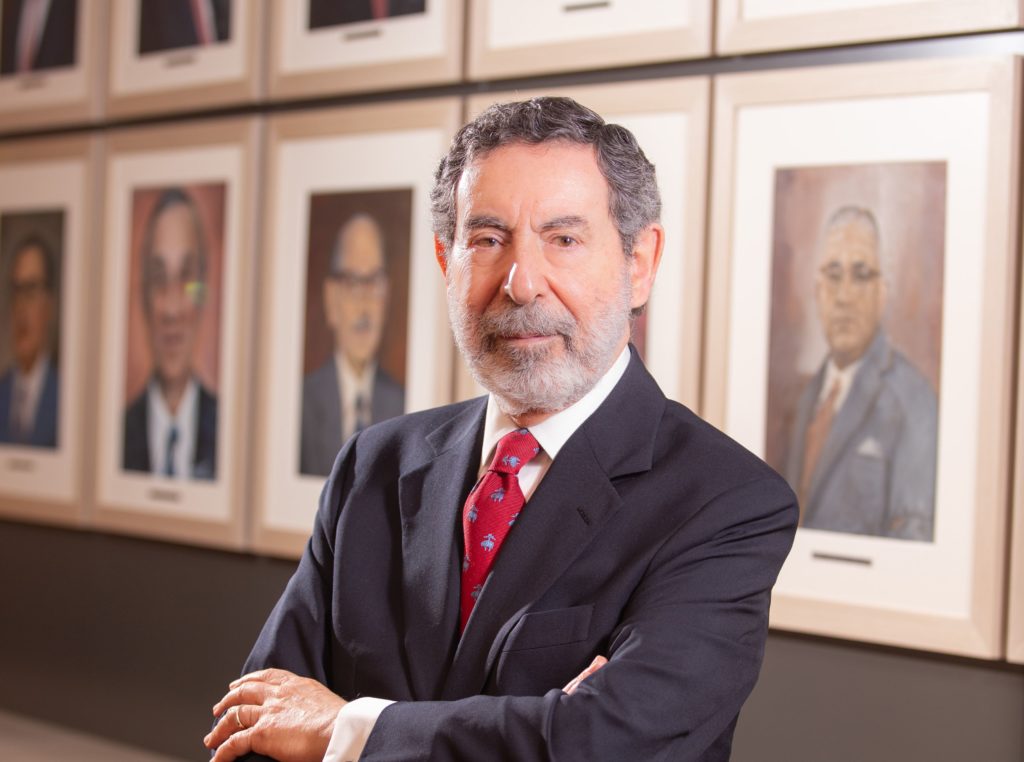By Osmar Chohfi
On July 2, 1952, a pioneering group of businesspeople decided to establish a chamber of commerce for the purpose of strengthening the economic ties between Brazilian companies and organizations based in Syria and Lebanon, the birth countries of most of them and their parents and grandparents who’d landed in our country decades ago in search of a fulfilling, prosperous life.
Later on, the entity, with a highly professionalized structure and very active in the business environment, was charged by the League of Arab States through its economic branch, the Union of the Arab Chambers, with the responsibility of acting on behalf of the economic interests of Brazil and the 22 countries represented by the organization, which together cover a territory as large as South American, are home to 420 million people and have now a total GDP of USD 2.81 trillion.
Over 69 years of history, the Arab Brazilian Chamber of Commerce (ABCC), in collaboration with governments, industry organizations and companies, has played a key role in the bilateral relations between Brazil and the Arab world, supporting business on both sides of the partnership. The most evident result of this endeavor is that the Arab League member countries became in 2017 the third major destination of exports from Brazil, only behind China and the United States, and have become the second largest buyer of agribusiness goods from Brazil.
The trade partnership started to really take shape in late 1970s, during the peak of the oil crisis. It was then that Brazil started trading products demanded by the block in exchanged of the fossil fuel, including halal poultry (which is fit for Muslim consumption), planes, passenger vehicles, as well as construction services for major infrastructure projects in the region, particularly in Iraq.
In delicate political situations, some difficulties arose in the trade with Arab countries. Nevertheless, Brazil has stood out as a friendly, reliable nation in supplying goods, particularly the foodstuff necessary to ensure the food security of the populations in the region, many of which live in territories with limited water and arable land for agriculture production.
The fact that, historically, Brazil has regularly come out in favor of causes that interest the Arab nations has provided us a framework of ever-increasing trade.
With the pandemic, players in the Brazil-Arab League trade partnership have reinforced the importance of furthering an even more strategic, beneficial bilateral cooperation that we work hard to achieve within our institution’s sphere of influence.
The ABCC is now focused on strengthening the exchange of ideas between governments and business associations. It also seeks to resume talks on Mercosur-Arab countries free trade agreements, aiming to further increase our significant trade, as well as contributing to structure out a digital foreign trade model that could serve as an inspiration for the relations between Brazil and its other trade partners.
A major initiative in that direction is the creation of the Ellos Platform, which will include digital customs clearance services, showroom features, and a trading area for Arab and Brazilian companies. The customs documentation of shipments bound to Qatar and Kuwait is now validated on the platform in an all-digital, paperless manner, which is an infinitely faster, more practical, safer process compared to the one previously used. We expect to extend this service to all Arab countries.
Withing the scope of strengthening the relations with governments, entities and companies, we’ll open ABCC offices in Brasília as well as Riyadh, Saudi Arabia, and Cairo, Egypt, which are going to add up to our branch in Dubai, United Arab Emirates, that opened in 2019. Besides expanding the dialogue and boosting trade, in doing so we expect to further the area of influence or the ABCC in these markets.
In the cultural sphere, we’ve established the Arab House, a space for dialogue and connections between Brazil and the Arab World, where we hope to acknowledge the many social and cultural features that have brought Arabs and Brazilians together through history.
We’ll also keep stressing the contribution of the women who work in the bilateral trade relation through our newly established Wahi Committee – Women Who Inspire, always working in line with up-to-date governance and sustainability standards, as our entity is subscribed to the United Nations Global Compact
Although much has been done to benefit Brazil-Arab ties, it’s a fact that the trade and economic cooperation is far from reaching its full potential, thus the ABCC, on its 69th anniversary, keeps pursuing a modern work and a joint future that is even more promising for Arabs and Brazilians alike. So, we look forward to our 70th anniversary!
Osmar Chohfi is the president of the Arab Brazilian Chamber of Commerce. He was Brazil’s ambassador to Spain and Ecuador. Worked at the Brazilian embassies in France, Argentina, Bolivia, and Venezuela. Was secretary-general of Ministry of Foreign relations (Oct. 2001-2002). Headed the permanent mission of Brazil in the Organization of American States (OAS).
Translated by Guilherme Miranda




